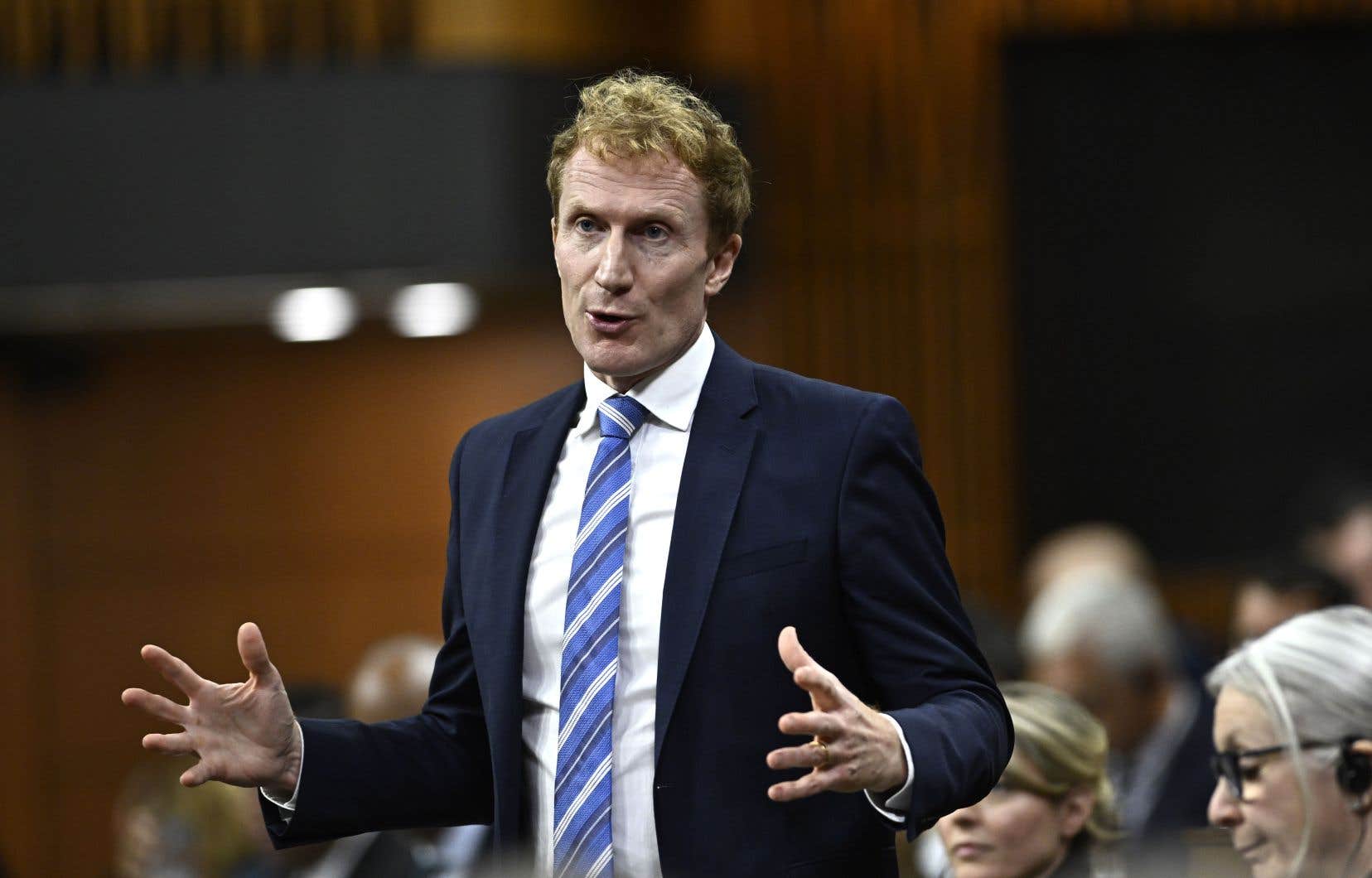Federal Minister of Immigration, Refugees and Citizenship Marc Miller will develop a new French-speaking immigration policy outside Quebec “to strengthen the vitality of French-speaking minority communities.” He made the announcement Tuesday and unveiled new goals Tuesday to “strengthen” Canada’s immigration system.
“I plan to be ambitious in the targets I will announce in the coming days, but I also want to be realistic,” the minister said in English. Without giving exact figures, the minister gave a target of 6% – more modest than requested – to ensure it is met, even if that means an annual increase.
This 6% would still be far from the rate demanded by the Fédération des Communautés francophone et acadienne du Canada (FCFA), which wants the federal government to set a target of 12% from 2024, reaching 20% by 2030. should lie.
“My goal is to ensure that communities outside Quebec can welcome all the people who urgently need them to maintain the social balance in the bilingualism of our country,” assured Mr. Miller.
When asked about a possible quota for foreign students, including in Quebec, the minister reiterated that he is not currently considering this option.
In addition to the new policy, the new Immigration Minister has committed to implementing a number of measures to improve the current immigration system. These measures include: an immigration system that quickly adapts and responds to global humanitarian crises; Improving the program for foreign students; Integrate planning for housing, health care and infrastructure, and other essential services into planning for Canadian immigration rates; and more effectively aligning immigration programs and pathways with workers’ needs.
“We know our system needs to be improved,” the minister admitted at a news conference in Ottawa.
New goals follow
As support for current immigration goals declines, Minister Miller will also unveil the new 2024-2026 immigration tier plan on Wednesday. He will therefore provide further details on the number of permanent residents Canada plans to accept over the next three years.
The latter claimed in a press conference on Tuesday that he “does not see any scenario in which we would lower the values.” [d’immigration] “He has not yet commented on a possible cap or increase in the targets.
“The motto is a certain stabilization,” he clarified later in the day.
These announcements come in a context where the share of Canadians who are likely to say there are too many immigrants in the country has increased by 17 percentage points. According to this recent poll, last year about 27% of Canadians believed that “Canada welcomes too many immigrants.” This year it is 44%.
However, Minister Miller emphasized the need to exercise caution when interpreting this data. “This is not a plea against immigration,” he said, “but a call for us to organize in ways we have not done in the past.” »
“We cannot realize our ambitious plan for construction, be it in housing or other infrastructure sectors, without newcomers who specialize in construction,” he added.
Public Services and Utilities Minister Jean-Yves Duclos said he did not fear a “backlash” over the matter. “Canadians, including Quebecers, have always wanted more people to come to the country to help us develop,” he said Tuesday.
Ottawa’s goals also sparked reactions in the National Assembly on Tuesday.
Parti Québécois MP Pascal Paradis said that while Quebec is “a generous, welcoming country,” it may have reached “a breaking point.” “When the new arrivals arrive, will there be accommodation for them? Are there social services? Are there jobs that match the qualifications of the newcomers? » asked the elected official.
“There is temporary immigration and permanent immigration. We had a big debate, we’re leaving [connaître la cible sur l’immigration permanente] morning. But we never discussed the temporary. I think we have to do it,” emphasized Quebec Solidaire MP Guillaume Cliche-Rivard.
More and more immigrants are leaving the country
While there are doubts about the new immigration targets that will be announced on Wednesday, the Canadian Institute for Citizenship (ICC) has released a report on immigrant retention. Their conclusion: More and more immigrants are leaving Canada.
Specifically, researchers found that 67,000 newcomers left Canada in 2019 and 60,000 in 2017. And on average, 14.6% of immigrants left Canada within 15 years of receiving their permanent residency status.
The report, prepared by the Conference Board of Canada, concludes that the rate of onward migration, or immigrants leaving Canada, has recently reached levels well above historical averages.
This data suggests that these newcomers believe that settling in Canada is not beneficial, the report says.
“As Canada increasingly relies on immigrants to address critical shortages in key sectors such as housing and health, our ability to retain them becomes a matter of critical national interest,” said Daniel Bernhard, executive director of the Institute for Canadian Citizenship .
In a press briefing on Tuesday, Transport Minister Pablo Rodriguez reiterated that there is currently “a lot of discussion” about immigration detention capacity. “We need to make sure we work with the provinces so they have the ability to do this [de les retenir] ” he explained.
With François Carabin

